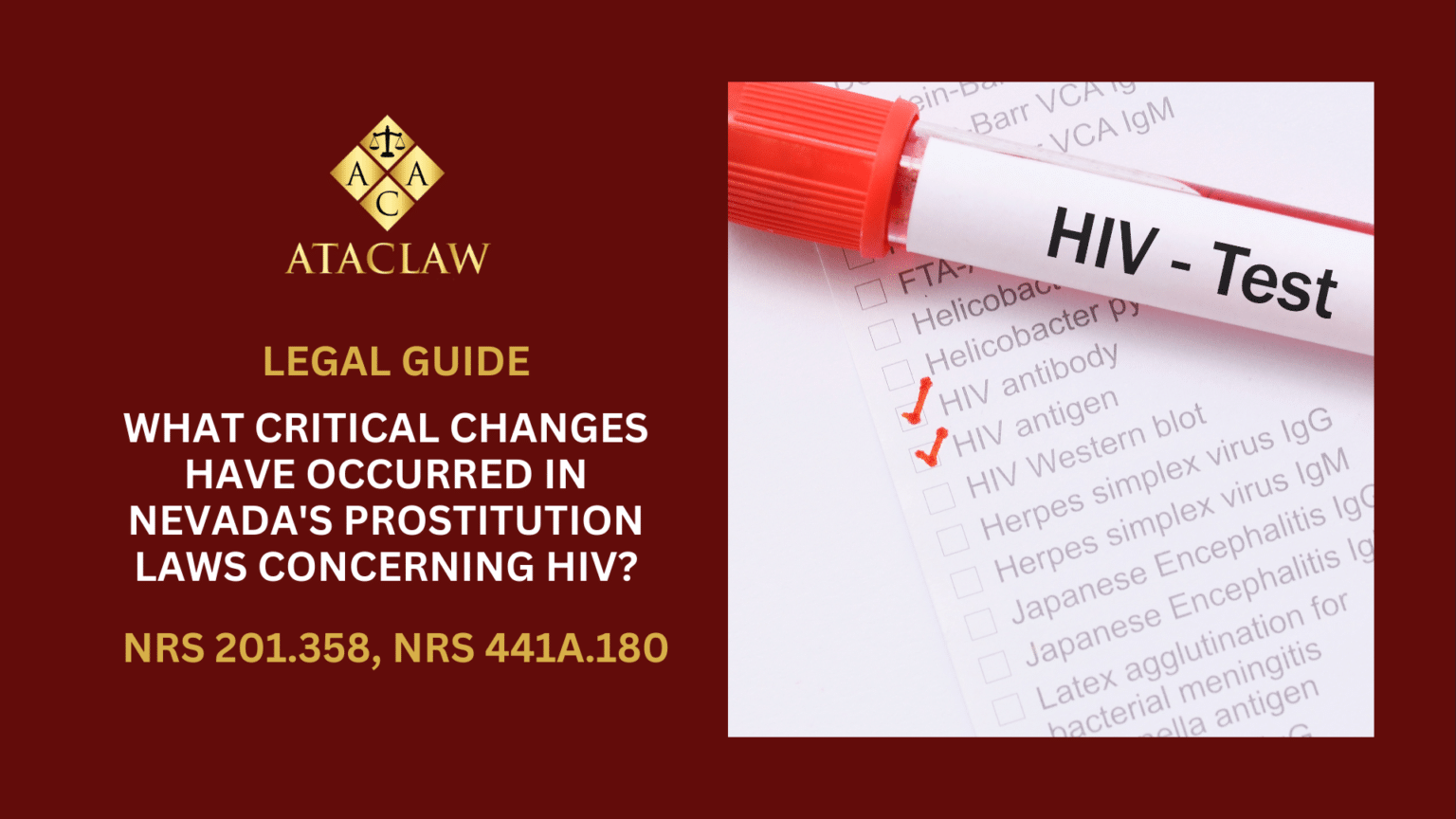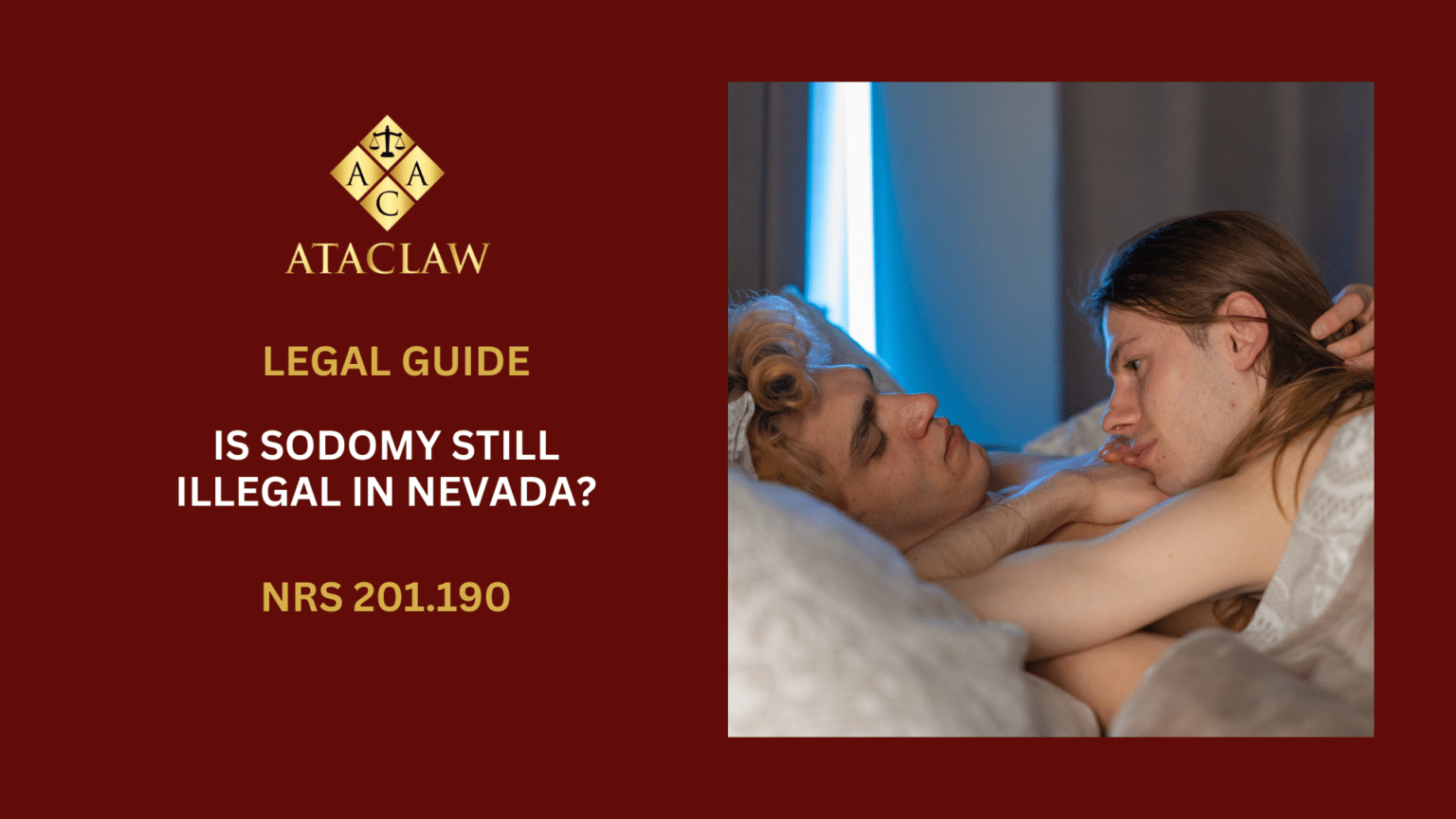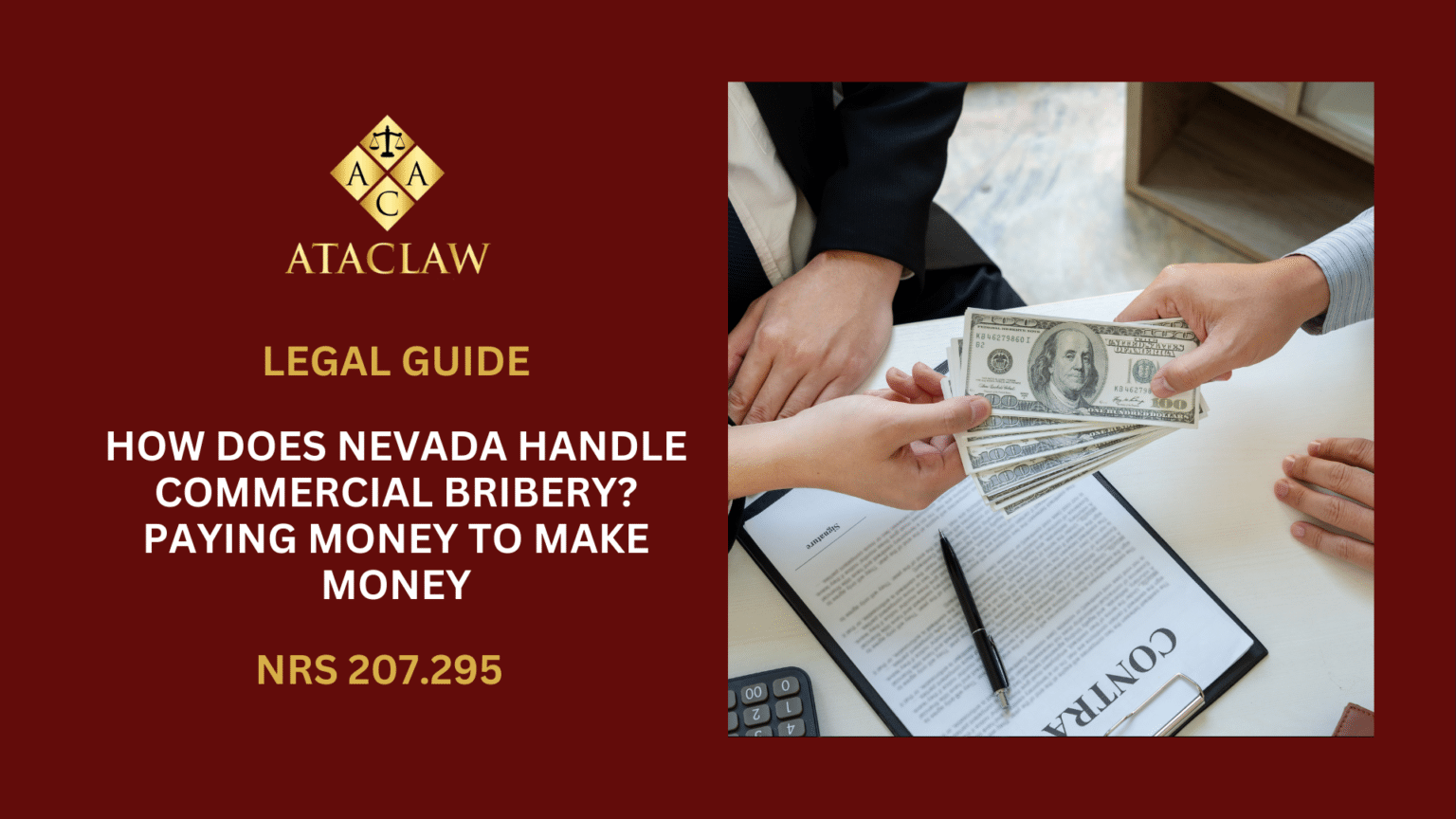Previously, Nevada had stringent laws in place under NRS 201.358, which harshly penalized individuals who are HIV-positive and engaged in prostitution. The law’s repeal and the introduction of new standards signify a crucial evolution in how legal systems approach such matters, balancing public health concerns with individual rights and circumstances.
With the repeal of NRS 201.358, the focus shifts to NRS 441A.180. Under this revised statute, it is now a misdemeanor for anyone to engage in occupations likely to transmit communicable diseases, including HIV. This includes prostitution. The penalties are notably less severe than previous laws, with potential consequences including up to six months in jail and/or fines up to $1,000.
How Did NRS 201.358 Impact Prostitution Laws in Nevada?
In Nevada, engaging in or soliciting prostitution generally results in misdemeanor charges. However, before the repeal of NRS 201.358, the legal consequences intensified significantly for individuals in the sex trade or their clientele if they were aware of carrying the Human Immunodeficiency Virus (HIV), the virus responsible for AIDS. This statute elevated such activities from mere misdemeanors to felony offenses, marking a significant shift in the legal treatment of prostitution for those living with HIV.
What Were the Legal Consequences in Nevada for Engaging in Prostitution While HIV-Positive?
In Nevada, prior to a change in the law, individuals who were aware of their HIV-positive status and participated in or promoted prostitution were subject to severe legal penalties. Specifically, they could be charged with a Category B felony. If convicted, the resulting sentence could include:
- A term of imprisonment ranging from two to ten years in the Nevada State Prison, and/or
- Monetary penalties amounting up to $10,000 in fines.
How Could Defendants Counter Charges Under Nevada’s NRS 201.358?
Before NRS 201.358 was repealed, individuals charged under this statute for engaging in or soliciting prostitution while being HIV-positive had several legal defenses at their disposal, depending on their case specifics. The potential defenses included:
- The accused had never tested positive for HIV.
- The accused had not been notified of any positive HIV test results.
- The individual did not participate in any prostitution activities.
- There was no offer or agreement to partake in prostitution by the accused.
- The act of prostitution or solicitation occurred before the individual was notified of their HIV-positive status.
- The individual was entrapped by law enforcement.
It’s imperative to note, there were certain conditions that did not serve as viable defenses under this statute:
- The absence of sexual activity.
- No exchange of money.
- The use of protection, such as a condom.
- The individual being a licensed worker in a legal brothel.
- The lack of HIV transmission.
Mutual awareness of the individual’s HIV status between the parties involved.
Under this law, the mere offer or agreement to engage in prostitution activities, with the knowledge of being HIV-positive, was considered a criminal offense.
Understanding the transformation of Nevada’s prostitution laws concerning HIV is not only beneficial—it’s critical. ATAC LAW is dedicated to affording clarity and direction during these changes, allowing individuals to better navigate the legal system. Should you require assistance or have questions regarding this matter, ATAC LAW is ready to offer expert legal advice, putting your concerns at the forefront of our mission.
For further legal assistance and to discuss your case with an expert, don’t hesitate to contact ATAC LAW.




